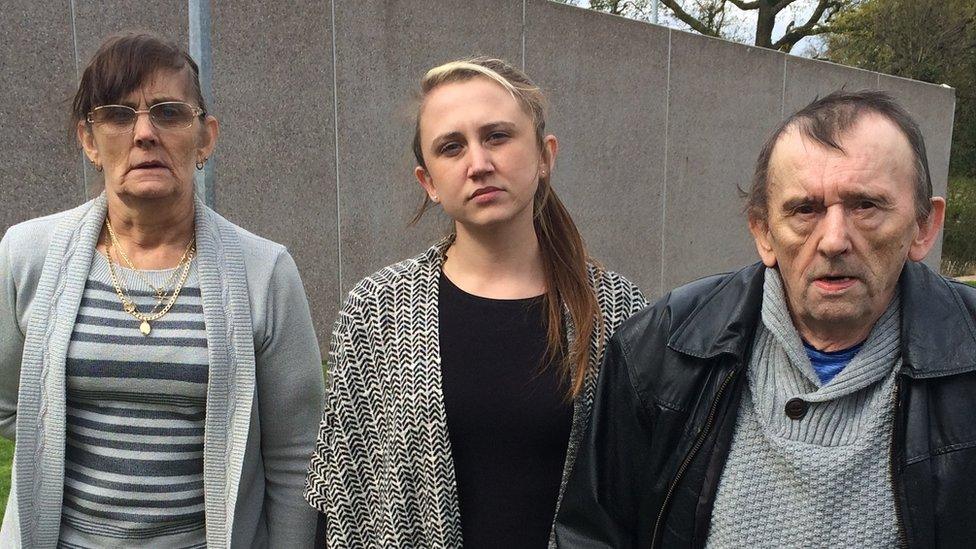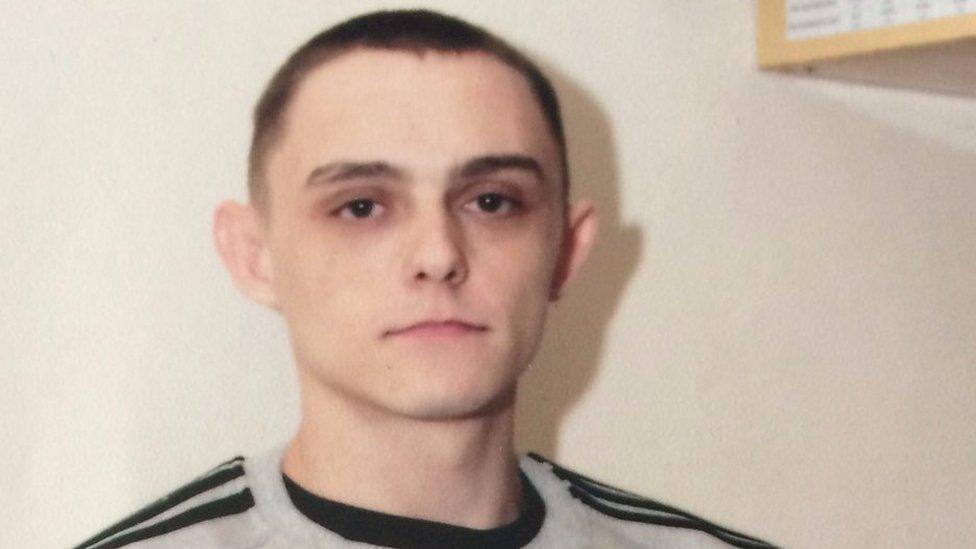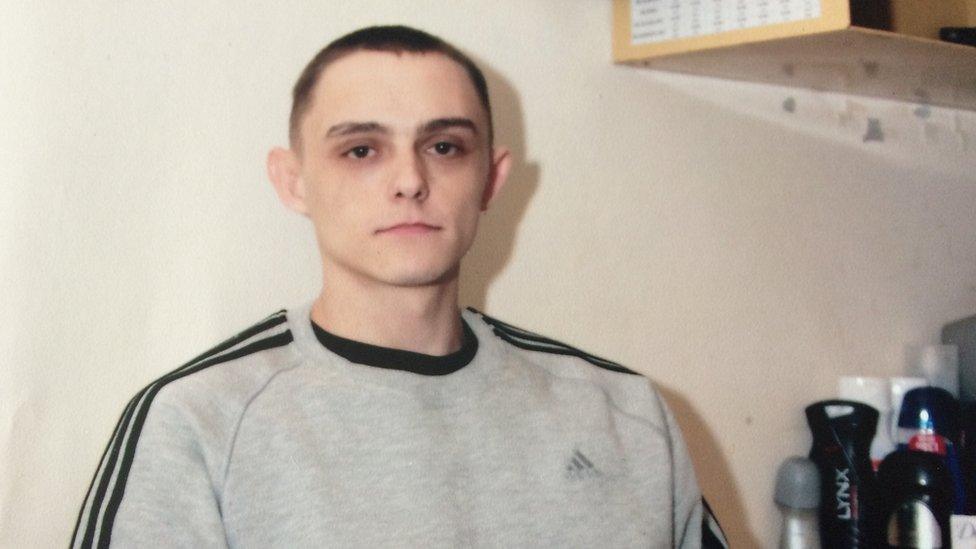Prisoner 'trapped' in jail for 11 years to be released
- Published
James Ward's sister April describes his release as "bittersweet" on BBC Radio 4's Today programme
A man who has served 11 years in prison for what was a 10-month sentence is to be released, the Parole Board has said.
James Ward was sentenced under Imprisonment for Public Protection (IPP), after he set fire to his bed while in jail for actual bodily harm.
The 33-year-old has mental health problems and has regularly self-harmed while serving his indefinite sentence.
The Probation Service is working to find Mr Ward a hostel and mental health support in the coming weeks.
Mr Ward's sister April said: "We are over the moon, my dad can't stop grinning.
"My dad hasn't grinned for years. I can't stop crying or smiling.
"James is not a risk to the public, he's only ever been a risk to himself, and with the right support we can get him there."
Ms Ward told Radio 4's Today programme she had yet to speak to her brother about his release and was unsure of whether he even knew that he was to be freed.
"He's got no hope. He will be very surprised of the release today because it's taken over 10 years for this result to happen."
Mr Ward, from Sutton-in-Ashfield, in Nottinghamshire, was serving a sentence in 2006 after getting into a fight with his father Bill.
But unable to cope with prison life, he set fire to the mattress in his cell, leading a judge to give him an IPP, which has no release date.

James' parents Christine and Bill Ward and his sister April have campaigned for his release
Mr Ward, who has a low IQ, has regularly self-harmed while behind bars.
He has also set light to his cell, barricaded himself in and has staged dirty protests.
He wrote to BBC Radio 4's Today programme in 2016, and said: "Prison is not fit to accommodate people like me with mental health problems. It's made me worse. How can I change in a place like this? I wake up every morning scared of what the day may hold."
The Parole Board has confirmed his release, but the Ministry of Justice (MoJ) has not commented on the case.
Ms Ward said she was "very confident" her brother will be able to get the help he needs once he is freed - including support from mental health services as well as the stability and love of his family.
She added: "I hope that IPP prisoners who are way over tariff can now also be released. I don't like to think about what would have happened if they'd decided against letting [James] out. He had given up."
The sentence was abolished in 2012, but more than 3,000 people in England and Wales are still serving IPPs.
Previously an MoJ spokesperson said: "We are determined to address the challenge of making sure all IPP prisoners have the support they need to show they are no longer a threat to public safety.
"This work is continuing to achieve results, with 576 IPP releases in 2016; the highest number of annual releases since the sentence became available in 2005."
- Published14 August 2017

- Published30 May 2016
